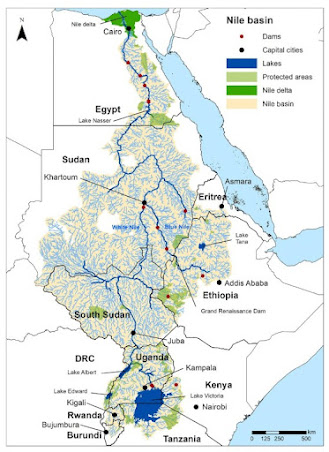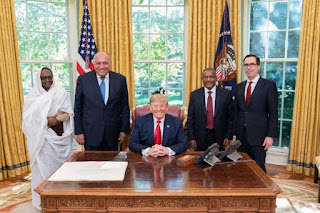The Grand Ethiopian Renaissance Dam: conflicts
In the second post, I briefly explained Egypt’s reliance on the Nile, as well as some of the worries concerning its historical right to the Nile being contested. In this post, I will delve deeper into these worries in the context of the GERD and look at the potential conflicts that may arise. I will also look at how Egypt has responded to the looming threat of a reduction in its share of the Nile’s water because of the GERD.
Another source of tension regarding the GERD is the time it takes to fill the reservoir. Egypt initially proposed a gradual filling of the dam over a period of 20 years, as a longer process would cause less disruption to water flows (Cooke, 2018). Ethiopia plans to do it in 6 years (Mutahi, 2020), so it can start producing and selling electricity to other countries.
The President of Egypt, President Abdel Fattah El-Sisi, has also warned Ethiopia that his government would not accept any actions that would diminish Egypt’s share of the Nile waters, stating that “all options are open” if the GERD alters Egypt’s share (Al Jazeera, 2021). This could potentially mean that Egypt would be ready to act militarily in order to defend its interests. This could potentially mean that Egypt would be ready to act militarily in order to defend its interests. The possibility of using military force has been a recurring subject in Egyptian politics since the GERD began construction. The late President Morsi discussed the possibility of using Egypt’s military in 2013, while President El-Sisi insisted that the Egyptian military should always be combat ready in the light of the tensions caused by the GERD (IFIMES, 2020).
While there hasn’t been any armed confrontation as of yet, the continuous tensions between Ethiopia and Egypt (and also Sudan), coupled with the failure to reach a deal despite years of negotiation, indicates that the potential for a “water war” is still very much present.




Very interesting read on the rising tensions caused by the GERD! Given rising populations and water demands in the region, do you suppose an agreement will be reached any time soon?
ReplyDelete